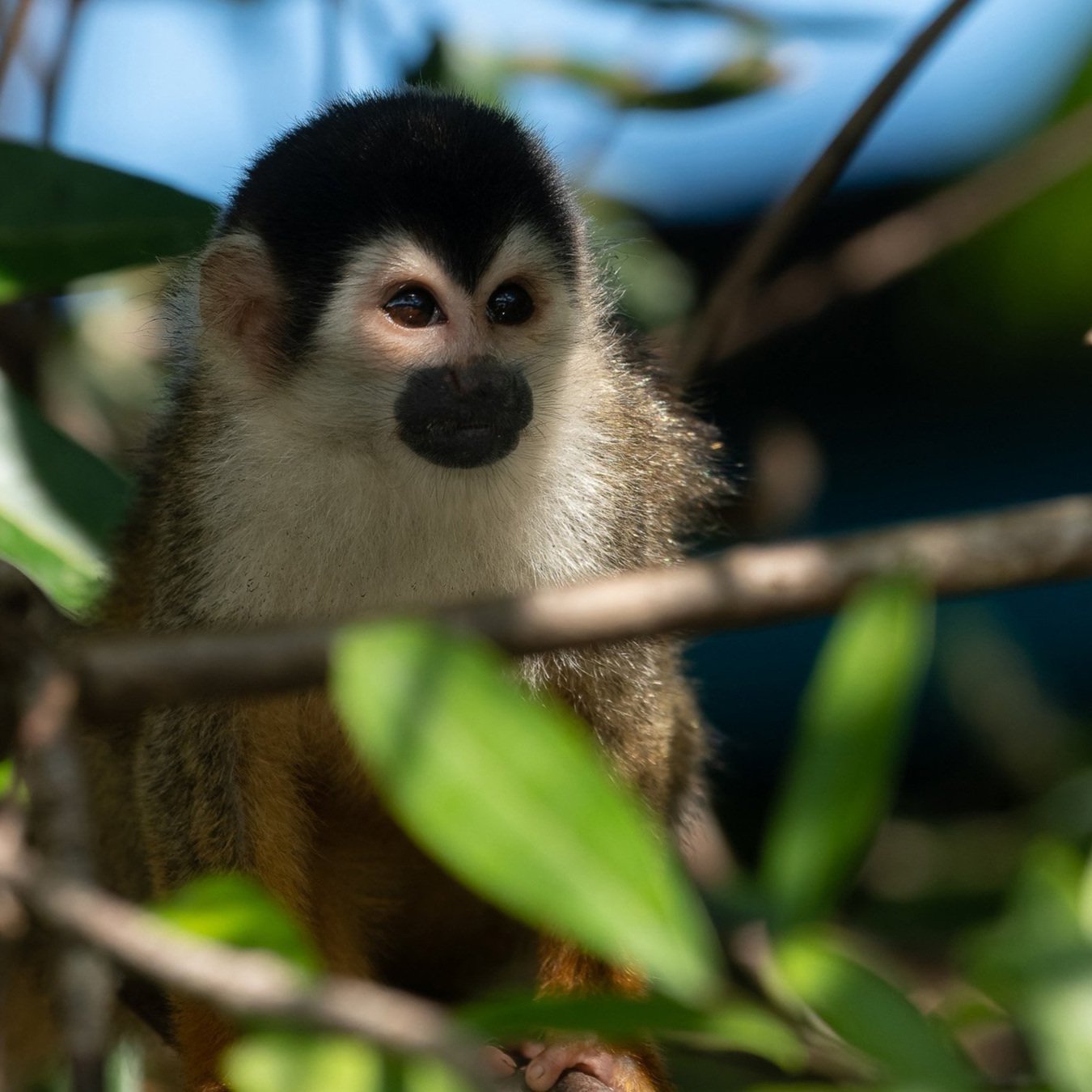
Corcovado National Park:
Sirena Ranger Station
Day Tour
Difficulty Levels
Called "the most biologically intense place on Earth" by National Geographic, Corcovado National Park is one of the best places to see wildlife in the world. The trails near the Sirena Ranger Station, in particular, are famous for their rich biodiversity. While most tours from Uvita visit the San Pedrillo Station, this tour offers the opportunity to spend the day at Sirena. We'll walk the trails looking for tapirs, anteaters, sloths, Jesus Christ lizards, colorful birds, and all four species of monkeys found in Costa Rica.
Tours from Uvita and the Costa Ballena area arrive by boat via Sierpe. Special arrangements can be made to enter by boat from Puerto Jimenez.
Tour Highlights
Exploring the trails in search of wildlife in one of the world's premiere biological hotspots
Searching for the Baird's Tapir
Seeing monkeys in the only spot in Costa Rica where all 4 species can be seen in the same place
Observing the charismatic birds that call Corcovado home
Searching for crocodiles and other reptiles
Looking for Bull Sharks at the mouth of the Sirena River
Travelling by boat through the largest mangrove forest in Central America
Looking for whales, dolphins, sea turtles, and other marine life on way to and from the National Park
Called "the most biologically intense place on Earth" by National Geographic, Corcovado National Park is one of the best places to see wildlife in the world. The trails near the Sirena Ranger Station, in particular, are famous for their rich biodiversity. While most tours from Uvita visit the San Pedrillo Station, this tour offers the opportunity to spend the day at Sirena. We'll walk the trails looking for tapirs, anteaters, sloths, Jesus Christ lizards, colorful birds, and all four species of monkeys found in Costa Rica.
Tours from Uvita and the Costa Ballena area arrive by boat via Sierpe. Special arrangements can be made to enter by boat from Puerto Jimenez.
Tour Highlights
Exploring the trails in search of wildlife in one of the world's premiere biological hotspots
Searching for the Baird's Tapir
Seeing monkeys in the only spot in Costa Rica where all 4 species can be seen in the same place
Observing the charismatic birds that call Corcovado home
Searching for crocodiles and other reptiles
Looking for Bull Sharks at the mouth of the Sirena River
Travelling by boat through the largest mangrove forest in Central America
Looking for whales, dolphins, sea turtles, and other marine life on way to and from the National Park
What's Included
- ✓ Boat transport from Sierpe to Sirena and back
- ✓ Permits to National Park
- ✓ Guided tour (4-5 hours) with a licensed naturalist guide
- ✓ Lunch at Sirena Station
What to Bring
- → Comfortable hiking shoes for walking on the trails
- → Water: at least 1 refillable bottle of water
- → Rain jacket & dry bag: appropriate clothing and bags to protect electronics in the event of rain
- → Lightweight, quick-drying clothing for rain and the hot, humid weather
- → Sunscreen and hats for protection from the sun
- → Repellent
Important Details
- ! A minimum of 2 people is required to book the tour
- ! Client provides transportation to and from Sierpe, but transportation can be arranged for an additional $25 per person
- ! There are a limited number of park permits issued per day. In order to ensure availability, reservations need to be requested in advance, with a minimum of at least 24 hours before the scheduled tour.
- ! Transport from Sierpe to Sirena is by shared boat and is subject to availability
- ! Visitors cannot bring single-use plastic water bottles - only reusable bottles are permitted
- ! No outside food is permitted in the National Park
- ! Lunch is a mandatory expense for all single-day visitors to the Sirena sector of Corcovado National Park
- ! Children of all ages are welcome on the tour
- ! Gratuity is not mandatory but it is kindly accepted in cash paid directly to the guide
Sample Itinerary
All guides are licensed by the Instituto Costarricense de Turismo (ICT) and insured by the Insituto Nacional de Seguros (INS)